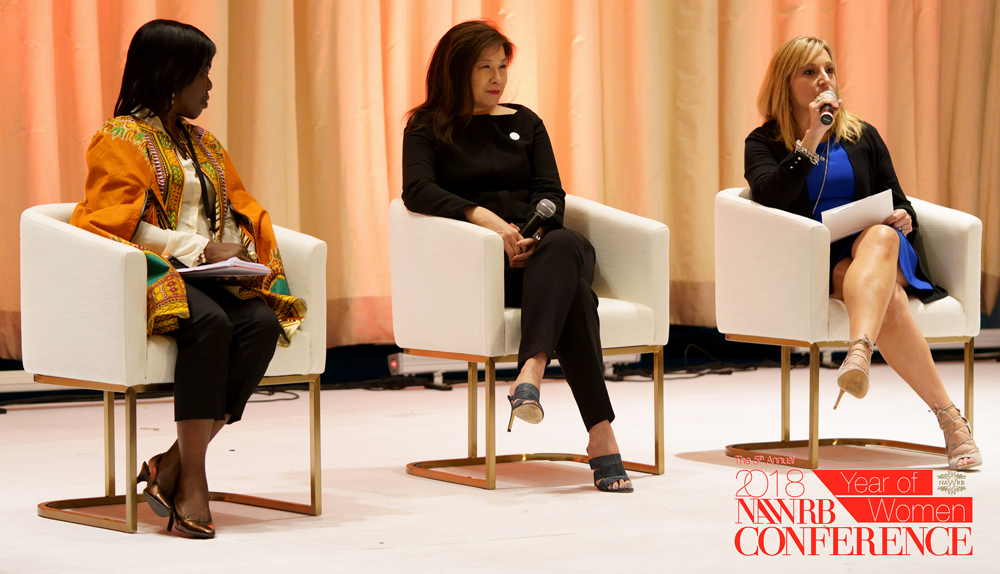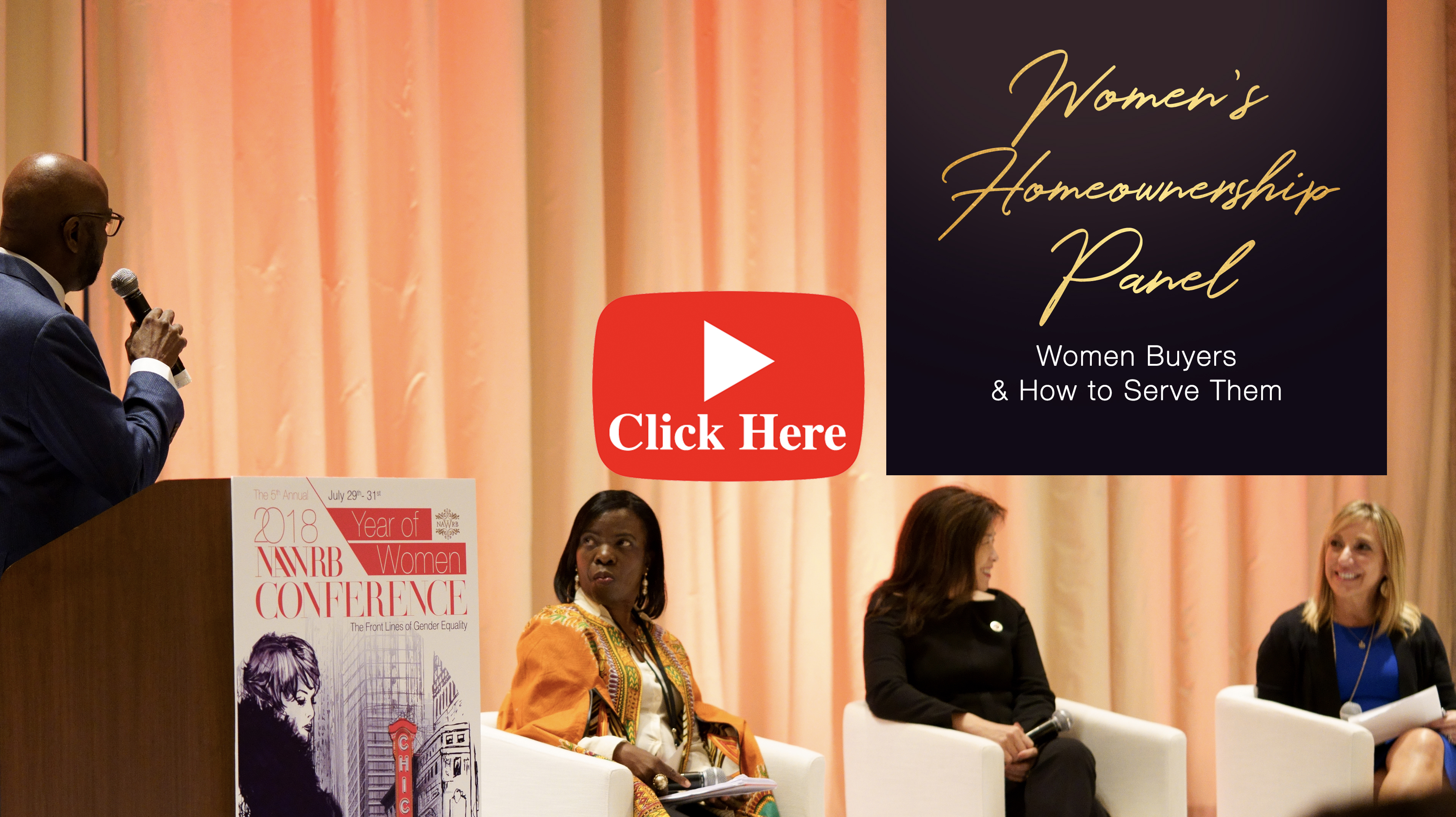The penultimate panel of the 2018 NAWRB Conference was our Women’s Homeownership Panel focused on women buyers and how best to serve them. The panel featured a diverse speaker list of experienced real estate professionals, including Moderator Lenny McNeill, SVP, Managing Director of National Strategic Markets and Specialized Sales, U.S. Bank Home Mortgage; Adenike “Nike” Fasanya, Osilaja Owner, Marvel Ventures Mortgage, Inc.; Carmen Chong, CC Legacy Financial Corp. President, Broker and Life Insurance Agent; and Nelly DeLourdes Mitford, MP Global Real Estate Group, Commercial, International Investment and Residential Real Estate Services.
As 36 percent of 126 million households are headed by women, and there are 114 percent more women-owned businesses than there were over 20 years ago, women comprise a formidable market increasing their purchasing power in the economy—about $20 trillion worldwide— that industry professionals should leverage. Our group of experts share how best to serve the unique needs to women buyers and words of wisdom from their own experiences.
Born and raised in Puerto Rico, Nelly is a real estate broker working in Houston who does service for national and international investors in commercial real estate. Carmen Chong, who is of Chinese descent but born in Nicaragua, is a 25-year veteran in real estate, mortgage lending, and recently financial services. Some time after joining the Asian Real Estate Association of America (AREAA) in 2007, Chong became the founding chapter president for AREAA in San Francisco. She currently resides as Chairwoman.
Nike shares her experience growing up in Nigeria and the obstacles she faced advancing in the workforce, from being taught that women’s role in homeownership is nonexistent to being told that she talked too much to feeling like “she was treated like a toy.” Despite opposition, she made sure she was a valuable figure in the mortgage industry, including earning her masters degree in law, creating her own company and getting qualified in multiple certifications. Her greatest advice to the audience for success is to make sure they are knowledgeable in all aspects of their field.
What are women looking for when buying a home? What drives them to make a purchase? For residential real estate, these industry experts share that women who are also parents are looking for a community that offers safety and convenience with close-by shopping centers and grocery markets. It is important to remember that women are driving referrals by word of mouth, at about 96 percent. However, 92 percent of women still feel that the real estate industry does not know or pay attention to them.
In commercial real estate, Mitford states that women are smart and cautious investors. Agents must make sure they are prepared when working with women clients because they often make sure to do their research and care about numbers more so than their male counterparts.
Chong reminds us that it is critical for agents to be cognizant of a client’s cultural background, because it will often shapes their perspective and decisions. For instance, in many Asian cultures, numbers have profound significance, symbolizing either good fortune or bad luck. The relationship between men and women often varies between cultures in terms of who takes the dominant role in the decision-making process, even if this is a front. Mitford echoes a similar sentiment when stating “We need to learn other cultures” in order to appropriately understand clients’ perspectives and accommodate them.
Education, and further research by experts, is the means by which we can empower women all over the globe to pursue homeownership and build wealth and independence. Fasanya articulates that we can make the greatest change by educating young adults so that they can start making informed decisions that will impact their futures. “The richest black women today is Nigerian. The poverty level in Nigeria is the highest in Africa,” states Fasanya. “We as women need to start digging into these numbers. We need to start targeting the young generation early and hopefully break the yolk.”

 Login
Login


